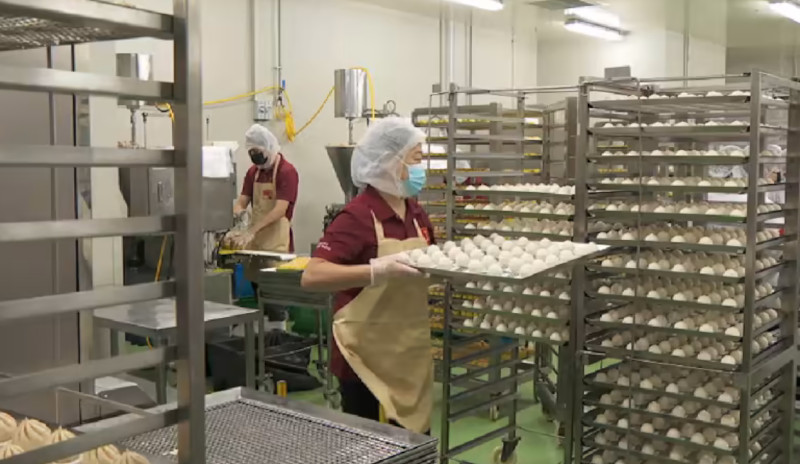In the near future, more than 2,500 jobs will be made in the food production sector. This will help workers to do tasks with more worth and improve their output.
This is plan for the new Jobs Transformation Map (JTM) for the field, which suggests ways for businesses to improve the productivity and skills of their workers.
About a quarter of the 22 jobs that were looked at will need to be changed. For example, production managers will need to be taught how to use technology to do human tasks.
It also came up with a list of eight new types of jobs, such as making new foods and analyzing data.
Singapore is a reliable leader in food in Asia.
"Business development and change in the work force must go hand in hand. "Businesses can't change unless their workers can support new business models and new job roles," said Tan See Leng, who is in charge of the labor force.
"A business can change when it has people with the right skills. At the same time, when businesses change, workers will be more likely to retrain and improve their skills to take advantage of new possibilities.
Along with the updated Food Manufacturing Industry Transformation Map (ITM) in 2025, which was also released on Wednesday by Dr. Tan, the job transformation map was also shown off.
The goal of the new ITM is to make Singapore a known leader in the food industry that can bring good names into Asia.
To cope with rising demand for food processing facilities and central kitchen, more food factories are currently build such as Food Vision and CT FoodNex. CT FoodNex food factory will be launching in May 2023.
Expanding into Oversea Market
Dr. Tan, who is also the Second Minister for Trade and Industry, said, "We have built up a lot of trust, reputation, credibility, and integrity with all of our suppliers."
"So, the Singapore stamp is a quality mark and a very high-end product when it comes to safety and trust.
"Therefore, these Singapore startups and SMEs should take advantage of the Made in SG brand name to be able to sell their products in many countries around the world."
As the pandemic and energy crisis continue, ITM has added a new focus on making the supply chain more resilient.
Dr. Tan said on Wednesday at the launch of Sin Mui Heng Food Industries' at Bedok Food City plant that Singapore has become "more vulnerable" because of changes in food supply and prices.
Along the whole food value chain, companies are also urged to use green methods.
Constantly Upgrade Workers Skillset to boost Productivity
The new plant of Sin Mui Heng Food Industries has smart technology that makes it possible for its lights, air quality and temperature to be controlled automatically. This will save you five hours of time every day.
As part of its plans to grow, the business plans to automate 80% of its industrial processes by next year and increase its output by five times.
"But even though we save a lot of people, we don't cut the number of people we employ," said Mr. Johnson Tay, who is the operations head at Sin Mui Heng Food Industries.
"About three people used to be needed to run each machine, but now we only need one. But keep in mind that we almost doubled the size of the workplace, and we are still only letting in the same number of workers for now.
This has made it possible for the company that makes dim sum to educate and re-assign workers to new jobs that will help the company make more money.
Sin Mui Heng Food Industries has users in more than a dozen countries and wants to grow into more places, such as the US and Ghana.
The company sends 20% of its goods to other countries right now, but it wants to increase that to 50% in the next five years.

